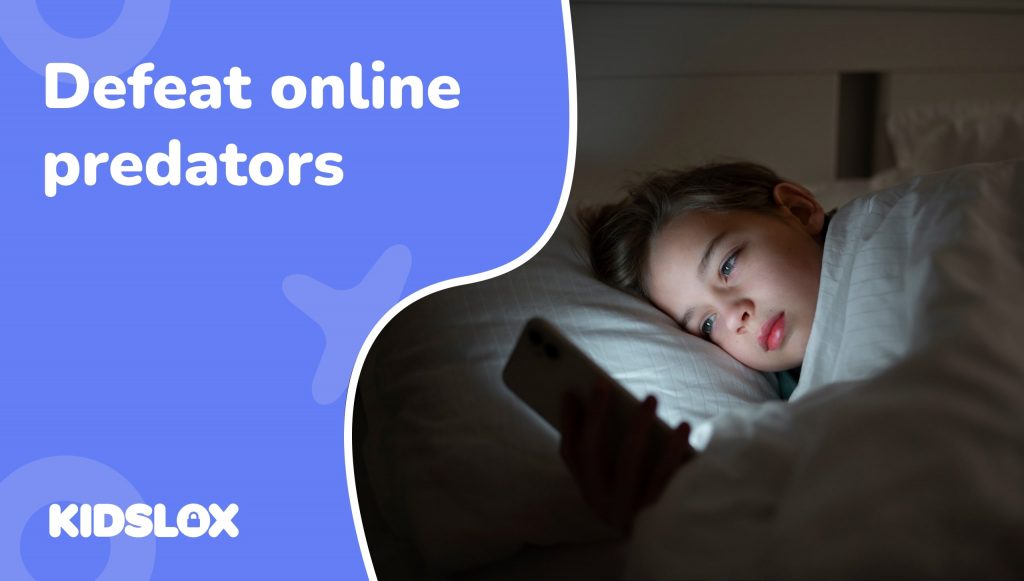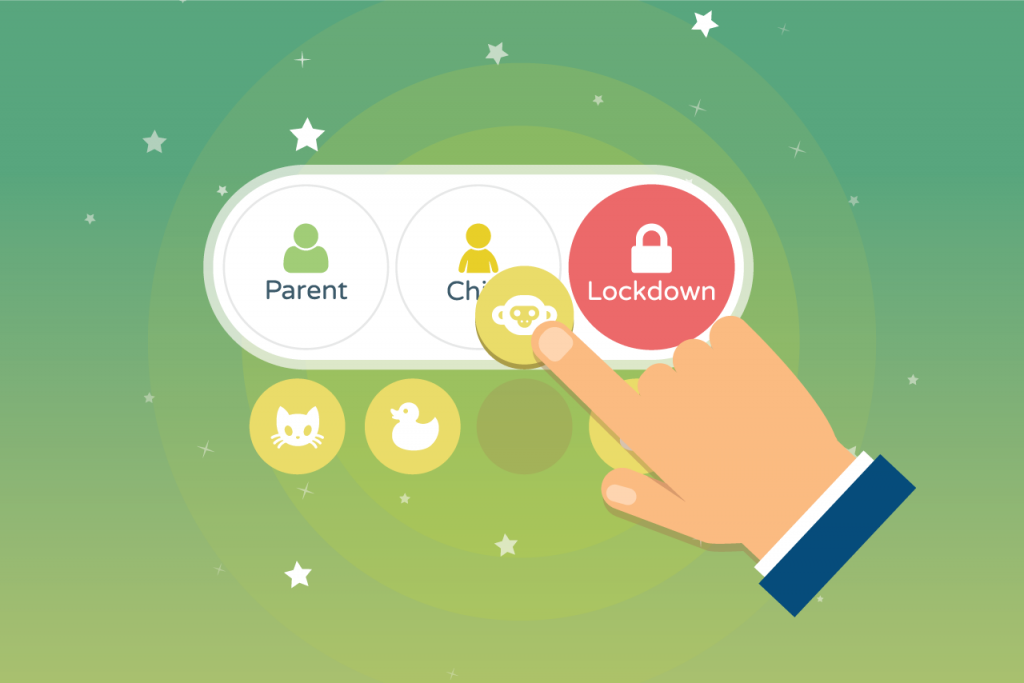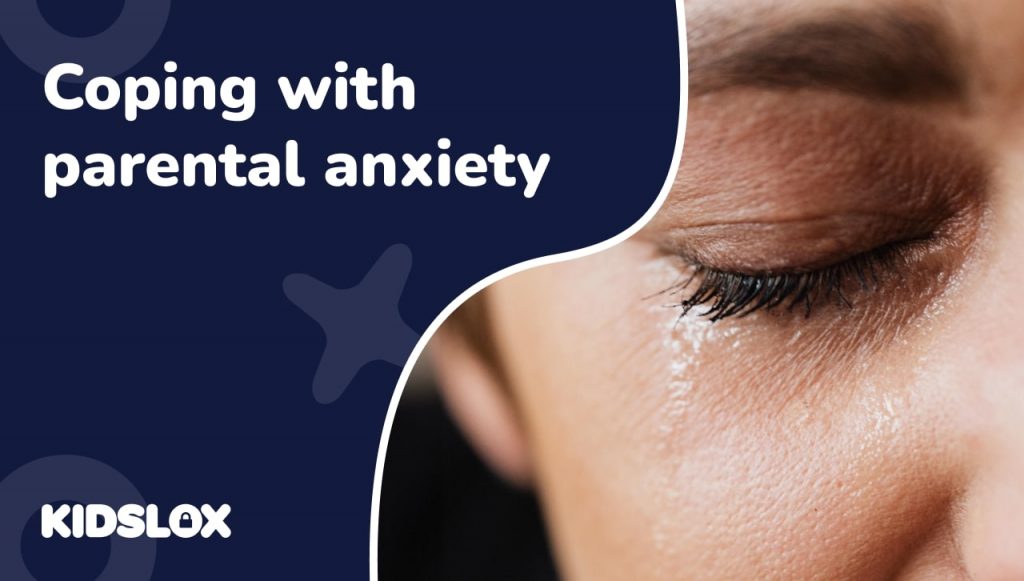How can you protect your child from harm online?
One of the biggest concerns parents have about their children using social media is the danger posed by online predators. These criminals seek to exploit children and teenagers to obtain sexual imagery. In some circumstances, online predators will lure children into meeting up in real life through the use of despicable grooming tactics on social media.
BBC news reports that during the time the world was in lockdown, there was a tenfold rise in the amount of images of children being abused online. One of the most shocking elements of this appalling increase in child abuse material is that experts believe the majority was ‘self-generated’. This refers to online predators grooming children into filming sexually explicit imagery of themselves, which is then traded online by pedophiles.
According to the Child Crime Prevention and Safety Center, there are half a million of these predators operating online at any given time. And, in a stat that will concern the parents of young teens, the most vulnerable time for children to fall into the traps of these criminals is between the ages of 12-15.
How do online predators approach children?
In most cases, online predators will approach children in chat rooms and via instant messaging on popular social media apps.
This can also happen in gaming chat rooms or in public forums. Once contact is established, the predator will find a reason to take the conversation into a private chat or message. The anonymity of the online world means that the predator can style themselves as whoever they want to. Usually they pretend to be the child’s age, or perhaps just a little bit older. The child feels like they’re talking to a peer, or someone who’s relatively closer enough in age to look up to.
Once contact is established, the online predator will continue to groom the child by finding out details about their personal life and establishing a picture of their family relationships. They may gain trust by offering friendship, small gifts and a listening ear. The conversations will become progressively more intimate and eventually become sexual.
The goal of the online predator is to build a wall around the child and become a confidante. Once this is established, often the child works to protect this relationship.
In recent years there have been some shocking online predator cases and this criminal activity occurs across all major platforms and popular children’s games and apps.
How to know if your child is talking to online predators on social media?
If you’re worried that your child and are concerned they might have been approached by an online predator, look out for the following signs.
- Hiding tabs, acting secretively or switching screens when you are around
- Denying you access to their device or getting very angry if you try to look at it
- Becoming nervous or agitated around you and their online device
- Using sexual language or terms that aren’t appropriate to their age
If the child has shared sexually explicit material, the online predator may use this against them to demand more in return for keeping their secret safe. Signs to look out for can include a child who is acting more withdrawn, isn’t eating or sleeping normally, and is more emotionally volatile than usual.
How to protect your children from online predators
Don’t wait until you’re suspicious about your child’s online behavior, make sure you have these conversations with them early. If you’re considering giving your child their own cell phone or device where they can independently access the internet, definitely make sure you do these things first.
1. Have a conversation about online predators
Your child wouldn’t approach a random person in real life, so make sure they’re well aware of online stranger danger too. Just because someone can’t hurt you physically, doesn’t mean they can’t harm you in other ways. Let them know that these people are out there, and not to trust whatever they see online.
2. Watch what you post
Teens may use the relative anonymity of the internet to be more outrageous than they would typically behave. This leads to more risk-taking behavior online. Predators know this and exploit children’s immaturity. Make sure your kids know that what goes online stays online and screenshots can be used to blackmail them or tarnish their image with peers, school and family.
3. Vulnerable children make easy targets
One of the most despicable things about online predators is that they pick on the most vulnerable of kids and they know where to find them. If your child is lonely, struggles to make friends or has special needs, these are all things that predators are attracted to. They will use their tactics to gain trust and make these particular children feel good about themselves to coerce them into behaving inappropriately. Make sure you pay special attention if your child has any of these challenges. Social media or online gaming forums might seem like refuge for them, but they’re often far from a safe haven.
4. Privacy is paramount
Children will sometimes amend their privacy settings to attract more followers and grow their online presence. It’s key to ensure they, and you, understand the dangers of having an open profile where anyone can contact you. Make sure you know which social media profiles your child has and rid them of any identifiable information. This includes full name, age, school details, address, sporting clubs and anything else a predator could use to track down a child.
5. Encourage real world hobbies
Children that have fulfilled and happy lives around social media and the online world have less time to spend on the internet. Ensuring that your child has healthy screen time limits and socializes with people they know in real life is a great way to keep them grounded, boost self-esteem and remove some of the allure of the murky world online.
6. Consider parental controls
Using parental controls gives you an added weapon against social media and online predators and gives you more peace of mind when letting your child explore the internet. Features include, site and app blocking, search history monitoring, an on-demand view of your child’s screen at any time you feel it necessary, a play-back of their day online, statistics and location monitoring.
Talking to your child about the importance of safe internet use and building a two way, trust-based relationship about why parental controls are important is the most effective way of introducing them into your family dynamic.
Governments around the world are facing increased pressure to pass stricter legislation to protect children from harm online. Keep up to date with the latest developments and research by looking out for the following charitable organizations, which were established to help protect young people and their families from predators online.
For more information on how to monitor your child’s online world, refer to our Guide To section, which includes tips and ideas on how to make using the internet safer for your family.





